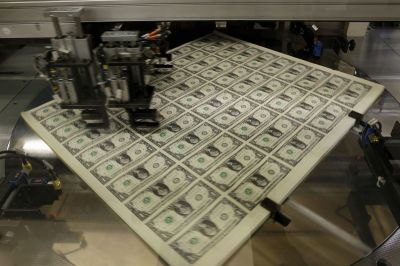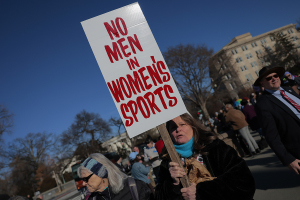The Death of Physical Money: Are We Moving Towards a Cashless System?

Cash is so ubiquitous that many take its presence and use for granted. It is in our wallets, available at ATMs and freely used to buy groceries or leave a tip. But year by year, this has slowly been changing as credit cards and electronic payments replace cash entirely. In India, this move is being hailed as a necessary measure to fight black market sales and government corruption.
In China, where most payments are now made through smartphone apps, the elimination of cash boosts efficiency and fights counterfeiting while increasing government control. Denmark is also making moves to stop printing cash and to discontinue its use entirely, but these three countries are far from isolated examples of the move towards credit cards and digital currencies.
Perhaps you already pay for most of your expenses with your credit card, debit card or PayPal account, a fact that is even more likely if you're a millennial. Now think for a moment about all of the uses you still have for cash. Pulling through a toll booth you may still pass a few dollars to the attendant or maybe your city still uses coin-operated parking meters.
Leaving a tip for a waiter in cash or easily splitting a bill between friends, and you might need cash as well. Do you ever pay a neighborhood boy to cut your lawn or slip a bill into a birthday card? And all of this ignores the times when there isn't a connection to the Internet to receive electronic payments.
Cash, difficult to trace and easily transported, is also used to fuel the black market. From sales of illegal narcotics to weapons in the hands of terrorists or criminals, governments often point to the elimination of cash as a way to stop crime and this has been one of the main selling points of digital blockchain currencies such as Bitcoin. But the elimination of cash in favor of trackable, centrally-controlled digital payment systems has far greater implications.
The first thing to understand is that the process is already underway. The United States Treasury now requires that financial institutions file a suspicious activity report for anyone who wants to withdraw $3,000 or more of their own money in cash. Simply possessing physical cash is considered suspicious, even if the money is already yours.
The $500 note was eliminated in the United States in 1969 and the European Union did so just recently. The $100 bill is the largest denomination now, but it has lost 85 percent of its purchasing power since 1969 and will continue to fall in value with inflation until it is virtually worthless, just like the penny. By simply not producing higher denomination bills, cash will slowly become worthless through the process of inflation.
India took the bold move in November of 2016 to demonetize both the 500 and 1,000-rupee notes overnight. Indians could exchange or deposit some that they already possessed, but only up to a 4,000-rupee limit and the transactions had to be registered with a bank (in a country where only 50 percent of the population has a bank account).
Credit card companies such as Visa and Mastercard are now offering incentives to retailers to convince them to accept only credit card payments and reject cash entirely. For certain companies, Visa will offer $10,000 to forego cash entirely due to the potential profits in transaction fees the credit card company stands to make. This is the second of three major incentives for creating a cashless society; the first is to reduce crime and corruption.
In a world where all financial transactions must be routed through a bank or credit card company, these large corporations can ensure that they collect fees on every facet of life. Governments, too, can collect a larger portion of the pie through taxes when the informal cash economy is eliminated. No transaction can take place without the approval of and tolls/taxes paid to both financial institutions and governments.
We are facing the 'death of a thousand cuts' by the double-edged sword of power and greed. Those in power, either corporate or governmental, stand to increase the already wide chasm between their wealth and that of the common man. The Boston Consulting Group estimates that financial institutions make in excess of a trillion dollars per year on electronic payment processing.
The third reason is control. Yes, crime may be reduced if there is no way to pay for contraband or bribe officials. But this level of control also allows retailers such as Amazon or Wal-Mart and payment processors such as Visa or MasterCard to track every purchase you make. Our data is collected, mined for patterns that predict our behavior and sold to other corporations. Governments around the world can do the same, allowing them to search for patterns of dissent or individuals critical of certain policies.
With absolute control of a nation's (or the world's) currency, a government is also able to freeze an individual or group's assets totally. This weapon has been used to great effect against companies suspected of terrorism (already a loosely shifting term) but, in Venezuela, under the Maduro regime, such measures are used against citizens critical of abuse or corruption by the socialist government.
Citizens found their fingerprints rejected for buying groceries (even in cash) and their bank accounts frozen. A totalitarian regime could ask for no better tool for social control than to know, through spending habits, exactly who opposes it and then to cut them off from any and all financial transactions whatsoever.
Under the guise of fighting crime and corruption, cash is slowly being eliminated. ATM operators in the UK, controlling more than 10,000 machines, announced in November that they were considering removing them entirely due to low profitability. Only 38 percent of Americans and 34 percent of Europeans would prefer to go entirely cashless, but ask any central government or megacorp and the answer would be very different.
The world of the future is likely to be one without paper money or coins, a world in which financial firms and retailers consolidate ever more power over consumers and governments enjoy absolute power over their subjects. Gradually, the world is being conditioned for that day when "so that no one can buy or sell unless he has the mark, that is, the name of the beast or the number of its name (Revelation 13.17)."
Kade Hawkins is the founder of Prophecy News Watch, a Christian news site focused on the relevance of current events in relationship to Bible Prophecy. His free newsletter is available here.



























